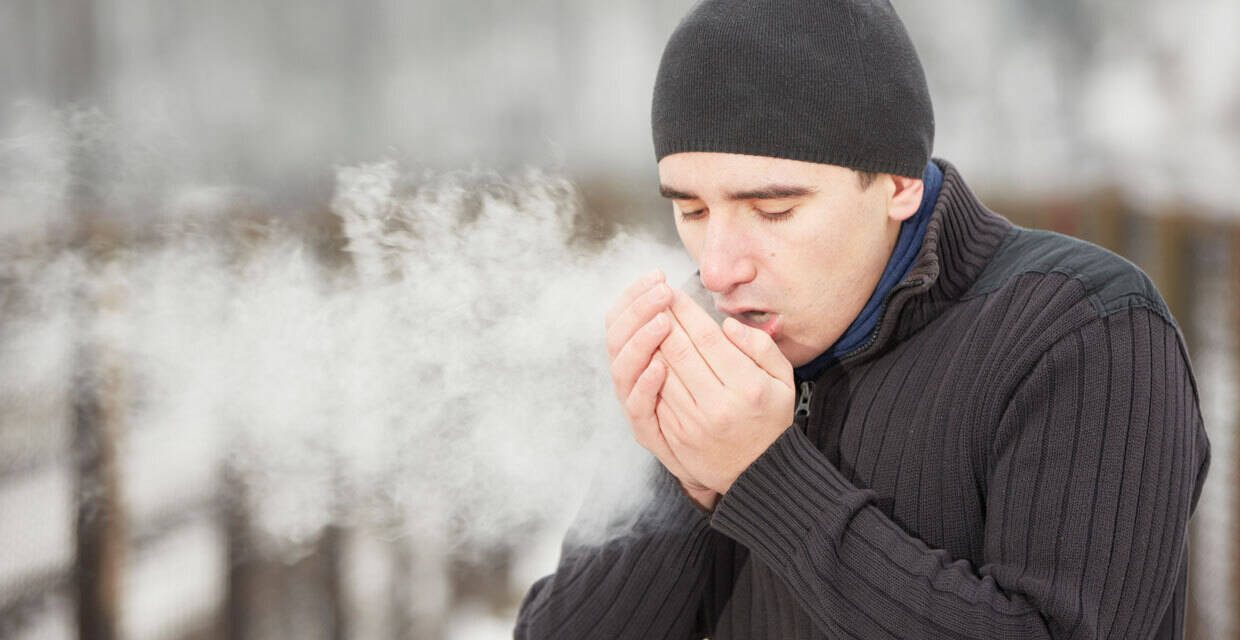Key Points
- Contrary to popular belief, cold weather does not make you more susceptible to illness. In fact, cold air makes it harder for germs to grow. The increased prevalence of colds and flus in winter is likely due to people spending more time indoors in close proximity to each other.
- Exercising in cold weather is not harmful to your lungs. It can actually improve running times, burn more calories and increase the production of endorphins, the 'feel-good' hormones.
- Allergies can still be a problem in winter. While pollen allergies may decrease, allergies to mold, dust and pets can worsen due to increased time spent indoors.
- The myth that most body heat is lost through the head is based on a flawed study. In reality, heat is lost evenly across the body when exposed.
- Despite the cold, it is still important to wear sunscreen in winter. The Earth's surface is closer to the sun in winter, and snow and ice can reflect up to 80% of the sun's rays, increasing exposure.
When it comes to getting sick, we've all heard the adages about cold
weather causing colds and flus. Here are some of the most common myths
about weather-related illnesses that have been debunked.
Being out in Cold Weather Makes You Sick
It's
largely believed that cold weather lowers your immune system causing
you to more likely to get sick. The opposite is true, actually. Cold air
makes it harder for germs to grow. So why are colds and flus more
common in the winter? What's likely happening is that cold weather
drives many indoors, causing you to be in tighter proximity and
increasing your chances of catching germs from others.
You Shouldn't Exercise in Cold Weather
Many
believe running in the cold air is bad for your lungs. However, the
opposite has been shown to be true. Instead, runners often have better
times (maybe the cold air is a motivation to get it done quickly) and
burn more calories because their body tries to keep them warm. Cold air
is invigorating and heightens your senses. It's also been found that
running in cold air increases the production of endorphins which makes
you happy.
There Are No Allergies in the Winter
While pollen allergies take a break during the winter, other allergies get worse. These include mold, dust, and pets. If you have a pet that you're mildly allergic to, you might find that it increases in the winter as you keep your pet inside because of the extreme temperatures.
Mold
thrives in humid areas, such as bathrooms or basements and, with your
house shut up for the winter, these spores can collect in the air. Dust
mites are microscopic bugs that can cause allergy symptoms through their
droppings and remains. Symptoms for winter allergies can include itchy
eyes and nose, sneezing, runny nose, and watery eyes.
Most of Your Heat Escapes Through Your Head
Everyone
has heard the myth that you need to keep your head covered in winter
because you lose most of your heat through your head. This is based on a
study done in the 1950s by the Army. The problem with how the study was
conducted was that the soldiers in the study were wearing gear on the
rest of their bodies to protect against cold weather, so the head was
the only place for heat to escape. Really, heat is lost the same over
your whole body if it's exposed.
You Don't Need Sunscreen if It's Cold
Though it's colder in the winter, the Earth's surface is closer to the sun than in summer (though it's tilted on its axis away from the sun). This means that the suns rays are actually more harmful in the winter. Add to that white snow and clear ice that can reflect sun (up to 80 percent of the rays that hit it) and you're getting double exposure. This is why it's important to wear sunscreen on sunny or partly cloudy days when you plan to spend time outside (longer than 15 minutes).
So run outside, wear warm clothes, and wear sunscreen to stay healthy this winter.
Frequently asked questions
Does cold weather make you more susceptible to getting sick?
No, it's a common misconception that cold weather lowers your immune system making you more likely to get sick. In fact, cold air makes it harder for germs to grow. The reason colds and flus are more common in the winter is likely because cold weather drives many indoors, increasing the chances of catching germs from others.Is exercising in cold weather bad for your lungs?
No, contrary to popular belief, running in cold air is not bad for your lungs. In fact, runners often have better times and burn more calories in cold weather. Cold air can be invigorating and heighten your senses. It's also been found that running in cold air increases the production of endorphins which makes you happy.Can you have allergies in the winter?
Yes, while pollen allergies may not be as prevalent, other allergies such as mold, dust, and pet allergies can get worse during the winter. This is due to spending more time indoors and the conditions inside homes during the colder months.Is it true that you lose most of your body heat through your head?
No, this is a myth based on a study conducted in the 1950s by the Army. In reality, heat is lost equally across your whole body if it's exposed, not just the head.Do you need to wear sunscreen in the winter?
Yes, even though it's colder in the winter, the Earth's surface is closer to the sun. This means the sun's rays are actually more harmful in the winter. Snow and ice can also reflect up to 80 percent of the sun's rays, increasing your exposure. Therefore, it's important to wear sunscreen on sunny or partly cloudy days when you plan to spend time outside for longer than 15 minutes.Does cold weather have any positive effects on the body?
Yes, cold air can be invigorating and heighten your senses. Additionally, exercising in cold weather can increase the production of endorphins, which can make you happy.Can winter conditions worsen certain types of allergies?
Yes, allergies related to mold, dust, and pets can worsen in winter due to increased time spent indoors and conditions inside homes during the colder months.Is it necessary to cover your head in winter to prevent heat loss?
No, the idea that you lose most of your heat through your head is a myth. Heat is lost equally across your whole body if it's exposed.


 LinkedIn
LinkedIn









